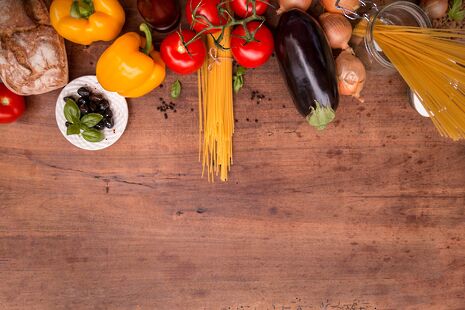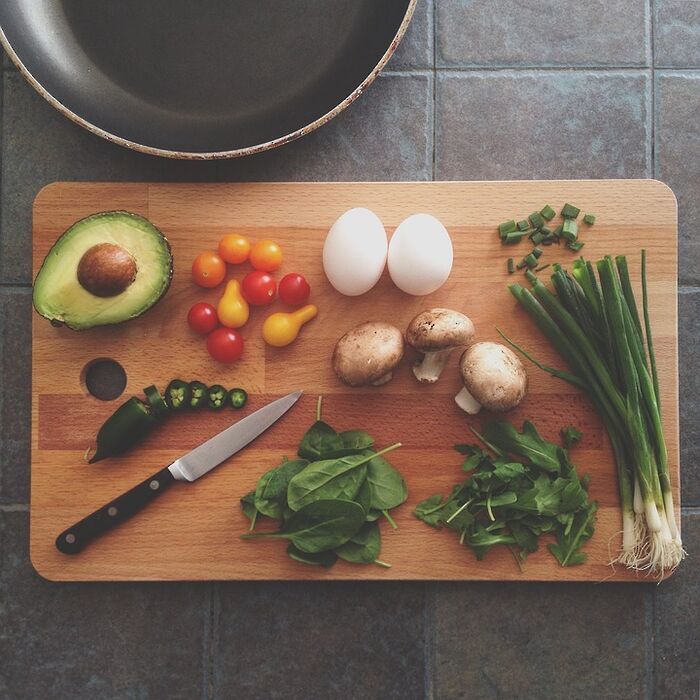Solutions to reduce food waste
Zach Lande looks at how we can reduce our food waste at university

The UK has a food waste problem. It is estimated that over 10m tonnes of food and drink are wasted each year, 60% of which could have been avoided. We can all be held accountable to some degree.
How many times have you thrown away fresh fruit or vegetables because they don’t look quite so attractive anymore? How many times has that last quarter loaf of bread seemed a little too stale, and only fit for the bin? How many times have you forgotten about milk or cheese in your fridge and decided to ditch it for fear of food poisoning? If your answer to these questions is “Never!”, then you are certainly doing better than most of us. However, this article is not designed to make you feel guilty about throwing food away; instead, it is an attempt to help Cambridge students realise that, by exercising their creativity and common sense, they have the power to make a significant impact on this pressing issue.
If food has passed these dates, you can still exercise your judgement
So, why does food get thrown away? Sometimes, our eyes are too big for our stomachs and we buy or cook too much. This is no bad thing, for leftovers can always become repurposed into future meals. However, every now and again not even leftovers escape the black hole of the bin. One easy solution is to make mealtimes a communal affair by making an effort to regularly cook with friends or those you live with. In this way, meals not only become cheaper – as you can pool money to buy ingredients – but also more efficient, as you have more people helping to cook and wash up. Shared mealtimes are also an inherently enjoyable experience which offer a natural break in the day. Even if you make a monstrous quantity of food, you can bet that there is always someone keen for a second helping (or third…probably a rower). Some colleges take a communal approach to food very seriously and have dedicated food sharing groups in which students post whenever they have leftover items or ingredients up for grabs, usually for free. This is a brilliantly resourceful way of getting rid of your surplus food without feeling guilty, and an excellent example of college collaboration in action.
Nonetheless, there is always the question of date labelling, which causes endless contention over what can or cannot be eaten. So, let’s start by clarifying the different labels: ‘Use by’ dates refer to safety; food can be eaten up to the end of this date but not after. ‘Best before’ dates refer to quality; foods will be safe to eat after the ‘best before’ date but may not be at their ‘best’. ‘Display until’ dates are used on packets to assist retail staff with stock rotations in supermarkets. The most important of these labels is ‘Use by’, which generally applies to meat, fish, and dairy, and offers the least leeway. Once a product has passed its ‘Use by’ date, you may get away with one day more, but anything beyond is at your own peril. The dates which offer the most flexibility are ‘Best before’ and ‘Display until’. If food has passed these dates, you can still exercise your judgement. Pick up the food: inspect it, smell it, taste it. If it looks, smells, and tastes fine, then that’s because it almost certainly is, even if the date says it shouldn’t be! Don’t be a slave to date labelling; liberate yourself and trust your senses.
When you go to the supermarket, it is wise to make a list. It may sound boring or pointless, but it will lead to smarter shopping. A list makes you put more consideration into the items you need versus those you want, which is especially worthwhile given that supermarkets are designed to encourage shoppers to make spontaneous purchases. If you’re feeling particularly organised, you can draft up meal plans in advance for days at a time, so that you know exactly which ingredients are required. But, let’s say you have fresh food which imminently needs using up. You want dinner, but you have no idea what to make. Or, you know what you want, but you don’t know how to make it. If you struggle to find culinary inspiration, a quick search online will never let you down if you simply type in the ingredients you have. When it comes to cooking, you have nothing to lose but your expectations of the end result. Making yourself cook, even if you don’t want to, may sound like a chore.
In reality, waste-free cooking at university only requires a small pinch of discipline, and a heaped tablespoon of creativity. The satisfaction you derive from not only using up your ingredients, but also whipping up a tasty meal, is endlessly rewarding. Have the confidence to push yourself and try something new, while simultaneously playing a part in the fight against food waste.
 News / Eight Cambridge researchers awarded €17m in ERC research grants27 December 2025
News / Eight Cambridge researchers awarded €17m in ERC research grants27 December 2025 News / Clare Hall spent over £500k opposing busway 24 December 2025
News / Clare Hall spent over £500k opposing busway 24 December 2025 Comment / League tables do more harm than good26 December 2025
Comment / League tables do more harm than good26 December 2025 News / Caius mourns its tree-mendous loss23 December 2025
News / Caius mourns its tree-mendous loss23 December 2025 Comment / The ‘class’ of Cambridge24 December 2025
Comment / The ‘class’ of Cambridge24 December 2025










